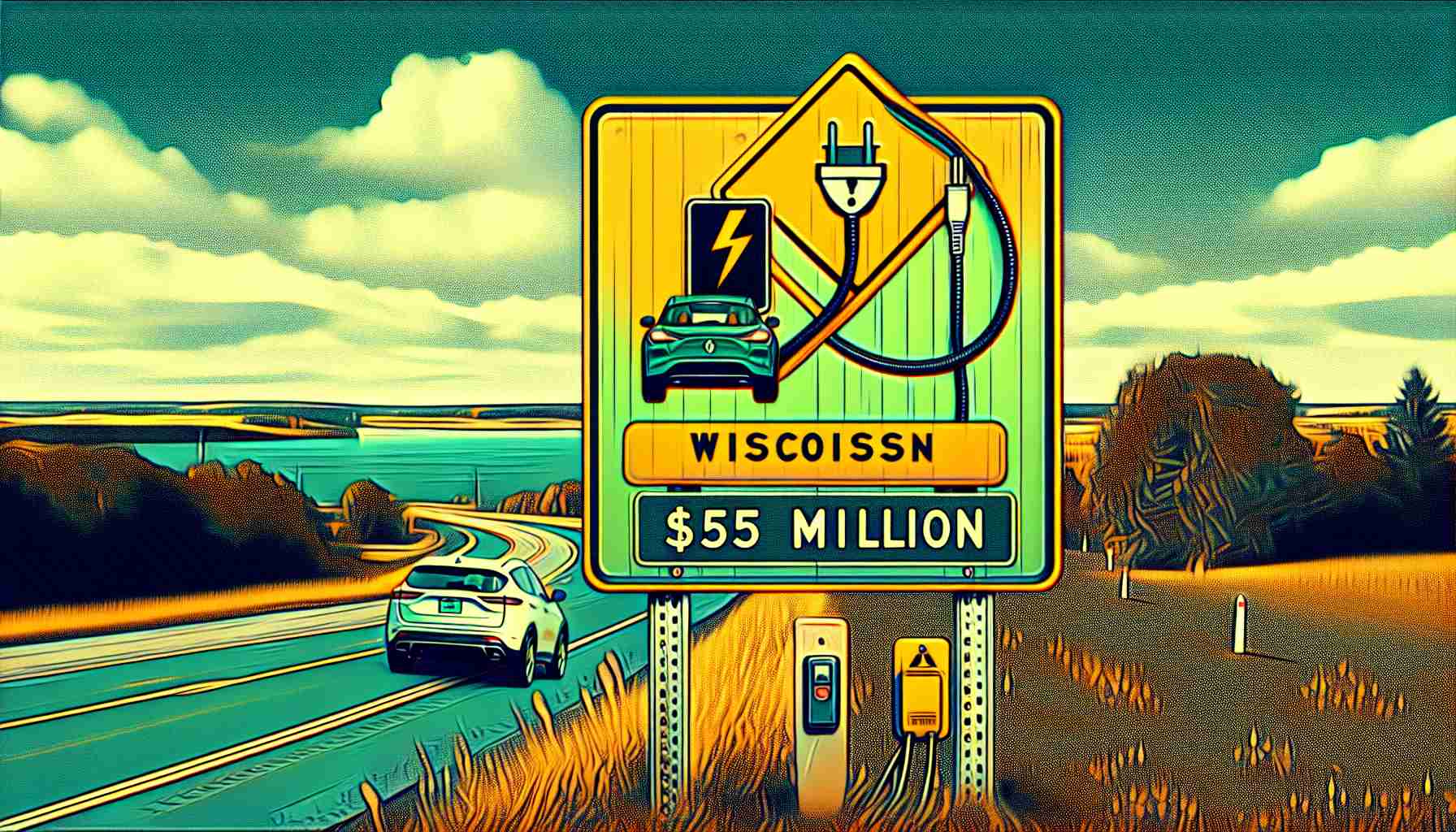- The Trump administration has suspended a $5 billion plan to expand EV chargers in the U.S.
- Wisconsin risks losing over $55 million in federal funding due to this halt.
- Governor Evers calls the decision shortsighted and reckless, stressing the need for an EV charging network.
- The state recently launched its first federally funded EV charging stations, with more planned along highways.
- Environmental advocates warn of potential legal action against the federal government over this setback.
- Wisconsin’s lagging EV infrastructure puts it at risk of falling behind in adopting greener transportation options.
In a stunning turn of events, the Trump administration has halted a crucial $5 billion initiative designed to accelerate the deployment of electric vehicle (EV) chargers across the U.S., leaving Wisconsin in jeopardy of losing over $55 million in much-needed federal funds.
The U.S. Department of Transportation recently announced an immediate suspension of state plans for expanding EV chargers until new federal guidelines are established. This development comes just days after Wisconsin launched its first federally funded EV charging stations, a project celebrated by Governor Tony Evers as a leap towards modern infrastructure.
Evers characterized the administration’s decision as shortsighted and reckless, stressing the importance of building a robust charging network to support EV adoption in the state. The initial rollout included charging stations at popular locations like Kwik Trip, but the state had also planned to install 65 additional charging stations along major highways to ease range anxiety for drivers.
Environmental advocates are voicing alarm, suggesting this setback could even spark a legal challenge against the federal government. Sam Dunaiski, executive director of RENEW Wisconsin, highlighted that Wisconsin is already behind other states in EV infrastructure and is now at risk of losing essential resources to improve it.
As the transportation sector remains a leading contributor to greenhouse gas emissions, the urgency for a comprehensive EV charging network is clear. Without swift action, Wisconsin could fall behind in the green revolution, stifling progress for cleaner travel options.
Shocking Changes to EV Infrastructure: What You Need to Know!
Overview of the Situation
In a recent development, the Trump administration has suspended a significant $5 billion initiative aimed at expanding the electric vehicle (EV) charging infrastructure across the U.S. This halt puts Wisconsin at risk of forfeiting over $55 million in critical federal funding, which could hinder the state’s efforts to enhance its EV charging network. This suspension follows the launch of Wisconsin’s first federally funded charging stations, a project praised by Governor Tony Evers as a critical step towards modernizing the state’s infrastructure.
Key Developments
– Immediate Suspension: The U.S. Department of Transportation has halted state plans for expanding EV chargers, awaiting new federal guidelines.
– Impact on Wisconsin: The state planned to deploy 65 additional charging stations along major highways to combat range anxiety, a move now jeopardized.
– Environmental Concerns: Environmental advocates worry that without swift action, Wisconsin may fall further behind other states in EV infrastructure development, which is vital for reducing greenhouse gas emissions.
Additional Insights into the EV Market
– Use Cases: Increased EV charging infrastructure enables consumers to transition to electric vehicles more comfortably, fostering greater adoption.
– Market Forecasts: As the demand for EVs continues to rise, an expansive network of charging stations is essential to support the growing number of electric vehicles on the road.
– Sustainability Trends: A robust EV charging network is critical for meeting sustainability goals and reducing carbon footprints across transportation sectors.
Three Important Questions
1. How will the suspension of the EV chargers initiative affect the future of electric vehicles in Wisconsin?
– The suspension directly impacts Wisconsin’s ability to implement a comprehensive charging network, which is crucial for supporting existing and prospective EV users. The lack of infrastructure could hinder EV adoption and the state’s climate goals.
2. What can Wisconsin do to address the federal suspension?
– Wisconsin officials could lobby for quicker development of federal guidelines or seek alternative funding sources. Collaborating with environmental advocates may also help to build a case for the necessity of immediate action regarding EV infrastructure.
3. Is there potential for legal action regarding this suspension?
– Yes, environmental groups have suggested they may consider a legal challenge against the federal government for what they perceive as a rollback on the commitment to EV infrastructure, impacting state-level green initiatives vital for sustainable development.
Related Links
For more information on electric vehicles and infrastructure developments, check out these links:
U.S. Energy Information Administration
U.S. Department of Transportation
RENEW Wisconsin














